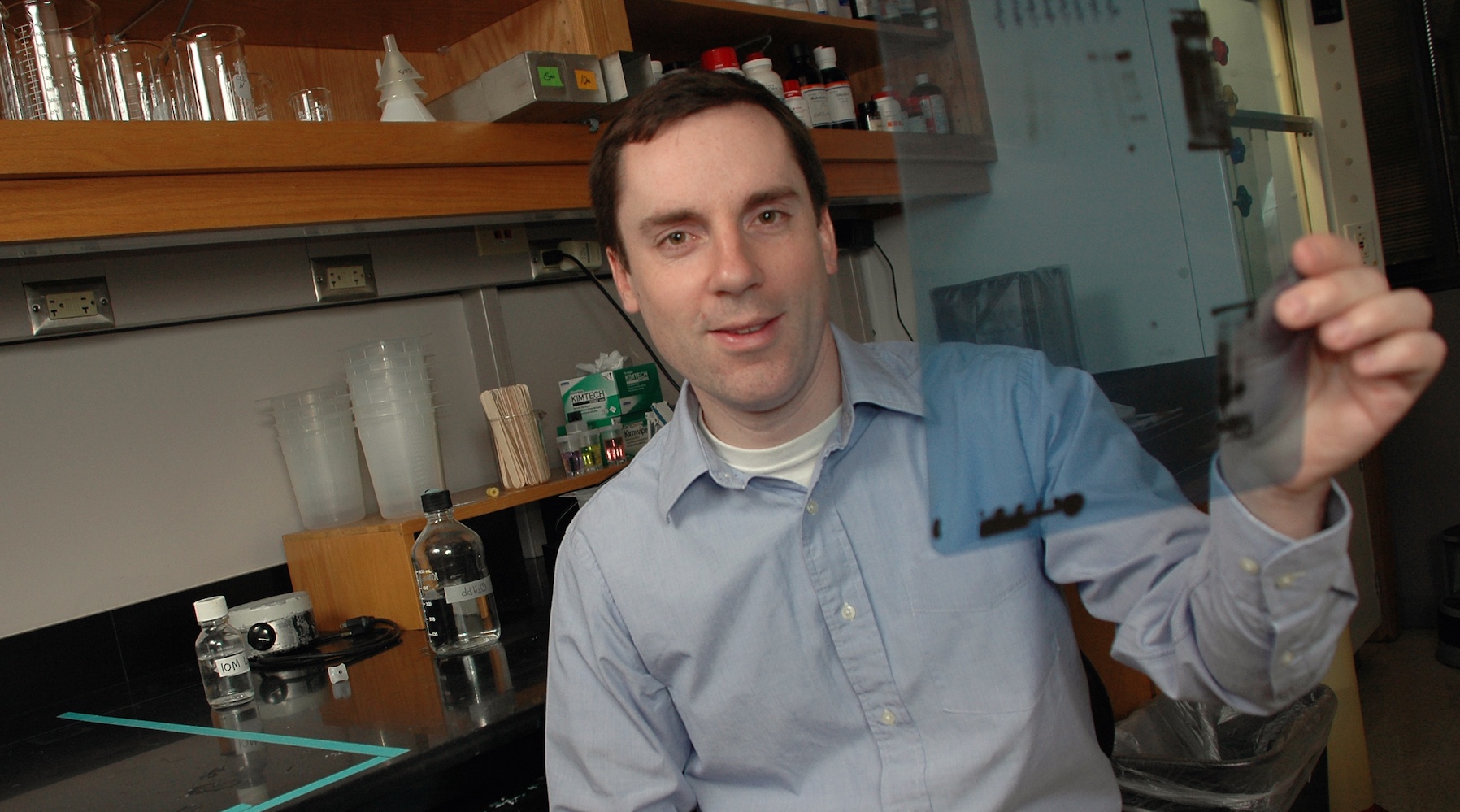Scientists at OMRF have discovered a way in which cells duplicate themselves accurately and completely.
The new findings provide a better understanding of how cells replicate, and it could help outline how and why this process goes wrong in cancer.
The genome is the complete set of genes or genetic material in an organism. Each cell carries the full set of genes from mom and dad, so every time a cell divides—which happens not only as we grow, but also throughout our lives as our cells repair and regenerate themselves—the genome must be accurately and completely duplicated. The process of genome duplication is called DNA replication.
DNA replication is extremely complex, said OMRF scientist Christopher Sansam, Ph.D. So, it’s not surprising that it goes awry, and the results can be devastating. Mistakes in DNA replication can lead to cancer.
“The best way to think about the genome is as an instruction manual—a really giant one—that gets copied every time a cell divides. This takes tens of thousands of cellular photocopiers to achieve,” said Sansam.
These copiers, said Sansam, have to ensure genetic information is replicated completely and without error. This is a key issue in cancer, a disease caused by damage to genetic material.
In his lab at OMRF, Sansam and his research team studied what prompted the process of DNA replication and where in the genome that process began.
Their research revealed a novel function for a type of cellular proteins called BET proteins and established an interaction between them and a protein essential in initiating DNA replication called TICRR. This point of interaction appears to be crucial in the identification of genetic marks that serve as a starting point for the process.
Sansam said this finding will allow for researchers to begin working toward new potential drug targets that can zero in on cancers at the origin point of this cell division process.
“In the early progression of cancer this copying of the genome goes awry, but we didn’t know how this happens,” said Sansam. “Now that we understand how these marks influence replication, we can look to see if that contributes to cancer formation. This could prove to be a big piece of the puzzle.”
The findings were published in the journal Genes & Development.
This work was supported by grant Nos. 5P20GM103636 and 1R01GM121703 from the National Institute of General Medical Sciences, a part of the National Institutes of Health. Additional funding was provided by a Health Research Program Award from the Oklahoma Center for the Advancement of Science and Technology (OCAST). OMRF researchers Courtney Sansam, Ph.D., Katarzyna Pietrzak, Maciej Kerlin, Blanka Majchrzycka, Jingrong Chen and Susannah Rankin, Ph.D., contributed to the findings.



